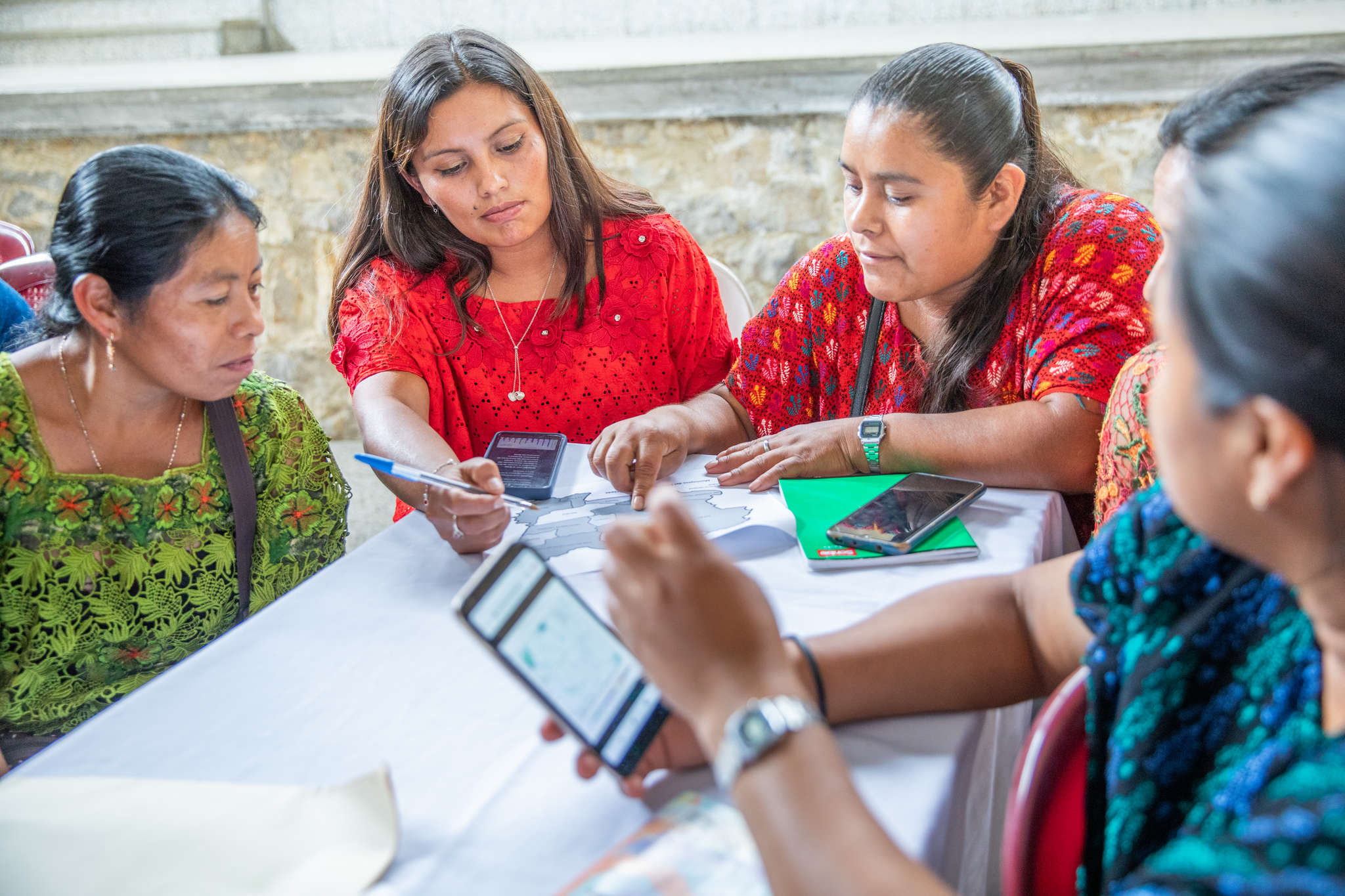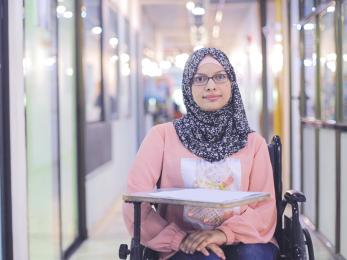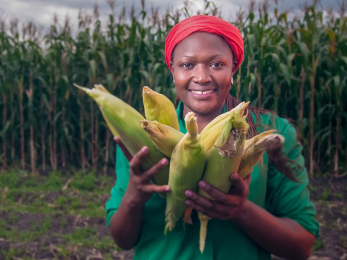Who is responsible for supporting gig workers left vulnerable by COVID-19?

As COVID‑19 continues to spread around the world, the pandemic is disrupting economies in an unprecedented manner, not least of all for developing countries like Kenya.
Earlier this year, the Kenyan government provided directives to curb the spread of the virus, including an international travel ban, curfew, inter-county movement restrictions and instruction for workers to work from home where possible.
Though necessary to reduce the threat to public health, these directives have greatly affected the majority of workers who live paycheck to paycheck, including many gig workers. Thousands of Kenyans have been rendered jobless, with Uhuru Kenyatta, the president, warning the number of jobless Kenyans may rise to over half a million in the next six months.
This crisis has undoubtedly exposed the vulnerability and lack of social safety net for gig workers in the country — although government bodies, nongovernmental organizations and corporate companies nationwide are going above and beyond to implement policies to cushion the economic impact of the COVID‑19 pandemic, little attention is being paid to the needs of workers in the informal sector.
As this challenge continues to unfold in Kenya, Mercy Corps’ Youth Impact Labs program team, which focuses on technology-based solutions to youth unemployment, studied how a lack of social safety net has affected workers in the gig economy, resulting in the calls to action below.
How the COVID‑19 crisis has impacted gig workers in Kenya
Consequences are dependent on the required level of direct interaction with clients.
The COVID‑19 pandemic has resulted in a mixed bag of outcomes for gig workers. Some, such as courier services, have seen a surge in demand. While others, especially those that require direct interaction with clients, have seen a sharp decline in demand. Gig services such as plumbing, electrical repairs, hair and beauty services and office cleaning have all experienced a significant drop in operations.
Car-hailing services like Uber and Bolt have also been greatly affected, as the nationwide curfew and cessation of movement in the Nairobi area have resulted in fewer ride requests and, consequently, reduced earnings for drivers. In early May, Uber revealed 3,700 full-time employees — or around 14 percent of its global workforce — would be laid off due to the widespread decrease of ride orders around the world. And a recent article by Long Beach Press-Telegram places the total job cuts made by Uber since the emergence of COVID‑19 at about 25 percent of its global workforce.
The nature of gig work has resulted in vulnerability
Gig work is — by nature — temporary, task-based and independent. While these qualities are attractive for workers who enjoy the flexibility attached to such jobs, the downside is that employing platforms do not have an obligation to provide gig workers with social security benefits. Given that gig workers are not permanent employees of the platforms or companies that dispatch them, they do not qualify for additional benefits such as medical insurance, paid time off, sick time, retirement benefits and other employee support provided in permanent and formal jobs.
Gig workers are adopting negative coping strategies to manage loss of income
In a recent Mercy Corps survey of gig workers in Kenya, nearly 80 percent of respondents reported depending solely on temporary jobs to earn an income. Under current conditions, only 24 percent of these respondents have been able to take up additional jobs, with the majority of gig workers admitting to no longer having income to sustain them and instead employing negative coping mechanisms, including taking expensive debt, selling household items, delaying or skipping rent and borrowing food and utilities.
80 percent of respondents have either delayed or skipped paying rent since the pandemic started, while 88 percent now have outstanding debts taken-on in an effort to meet their everyday needs. Over 82 percent of surveyed households mentioned cutting back on non-food items such as water and hygiene products, and many revealed they have resorted to eating only one meal a day.

Gig platforms step up to support workers
Service platforms are not mandated by law to provide social protection measures for gig workers. That said, some have stepped up to protect their workers.
Various online platforms have put intervention measures in place to support their workers. For instance, Lynk, which connects task-based service providers to customers, has provided its workers with personal protective equipment such as disinfectant, gloves and masks, even offering training to help workers protect themselves. Lynk also collaborated with Safe Hands Kenya to offer disinfecting services in informal settlements across Nairobi, creating an opportunity for more Lynk cleaners to benefit by being trained and onboarded to deliver cleaning services under the initiative.
Some gig platforms have pivoted to offering disinfection services over less-in-demand traditional gigs such as repair work, to ensure their workers are still able to earn an income. FixChap, a Tanzanian gig platform, has diversified into fumigation services, anticipating that fumigation opportunities will evolve to long- or short-term contracts for their gig workers, even post COVID‑19. The Ethiopian gig platform Taskmoby has also started providing fumigation services, catering to households, businesses, industrial parks, factories and government offices.
Other platforms have mobilized funders and well-wishers to support gig workers by establishing financial support, such as the Uber Care Driver Fund, which has collected contributions from Uber employees, riders, corporations and NGOs to support vulnerable drivers. During the month of April, the fund provided 55,000 Uber drivers across India with cash grants to help meet immediate and essential family needs during this crisis
Companies including SWVL, Uber Kenya, Glovo, Jumia and SafeBoda have also taken measures to support both gig workers and clients during this time.
Social protection gaps for Kenyan gig workers
The International Labor Organization defines social protection as the security people and families have in the face of vulnerabilities and contingencies. Most informal workers, like those in the gig economy, are not guaranteed social security protection since they are largely viewed as independent workers. While this argument may have worked in the past, the challenges highlighted by the COVID‑19 pandemic present new issues for policymakers to address regarding workers’ rights.
Social security
While social security may be defined differently between countries, what is common is its role in safeguarding workers in the case of job loss or retirement. In Kenya, formal full-time workers have a mandatory contribution to the National Social Security Fund, which can be primarily accessed once a worker reaches the retirement age of 55. Though the fund is equally available to informal workers, in most cases they do not have a set contribution structure through their employer, preventing the fund from serving as a safety net when the worker loses their source of income.
Health insurance
Gig workers do not have suitable healthcare insurance plans through their employers, in spite of the high health risk that can be present in their day-to-day work. For example, motorbike riders who handle deliveries are at greater danger of being involved in accidents, some of which may cause permanent disability. And now, in the wake of COVID‑19, these riders are at higher risk of contracting the disease due to their constant contact with products and people.
Most gig workers with health conditions have to dig deeper into their pockets to cater for medical services, not only for themselves but for family members as well. During our research, Mercy Corps spoke to a gig worker who sold her personal assets just to partially pay medical bills. She also explained that her child constantly falls ill and, during the pandemic, she has been forced to borrow money to pay for their care. This is the story of many gig workers.
While countries like Kenya may have health coverage systems like the National Hospital Insurance Fund, which provides a self-employed option, the nature of gig work does not necessarily provide consistent income to help the worker fit into this scheme. Health insurance, like most insurance options, has traditionally targeted the formal sector, with very few insurance companies providing adequate and accessible products to gig workers.
Gig workers are, in particular, more complicated to insure due to the on-demand and unpredictable nature of their work, lack of structured contracts, and often poor and inconsistent pay. As a result, most products provided by insurance companies do not meet the unique needs of the gig worker segment.
However, pilot programs implemented by MicroSave Consulting, a financial, economic and social services consulting firm, have proven that well-designed, tailored insurance programs can be effective for the gig economy. According to an analysis by the firm, behavioral research and human-centered design can be applied to generate insurance solutions that are adequate and accessible, and that meet the needs of gig workers.
Sick pay
Some gig platforms are stepping up to provide a form of sick pay for workers in light of the COVID‑19 pandemic, such as Uber Eats in the UK, which has a policy of providing food deliverers daily and weekly payments based on previous earnings for up to 15 days of illness.
But this crisis has brought to light the necessity of widespread sick pay policies for gig workers, many of whom are currently at the forefront of providing essential services. These workers face the risk of infection but, if ill, most cannot afford to take time off since it means they will go without an income for the number of days they are unwell.

Global efforts to improve workers’ protections that Kenya can adopt
The World Economic Forum’s “Charter of Principles of Good Platform Work.” In an effort to provide sound, productive solutions in the digital platform sector, leading companies in the digital gig economy partnered on “The Charter of Principles for Good Platform Work,” an initiative to actively identify and commit to key principles that in their view should underpin good platform work — including social protection.
The social protection principles highlighted in the charter include the following recommendations:
Governments and platforms should collaborate to ensure that workers have access to a comprehensive set of reliable and affordable social protections and benefits that meet their individual needs, taking into account local conditions, and are well informed about their options. This process should take into account workers’ views and feedback on their needs.
Regulation should be adapted as appropriate to enable platforms to support the provision of such benefits to workers who are not classified as employees.
Contributions to public or private social protections and benefits could be made by stakeholders as appropriate, subject to employment status, jurisdictional context and local conditions.
Social protection and benefits should be portable and pro-rated, where applicable, and subject to local conditions and jurisdictional context.
The United States’ Coronavirus Aid, Relief and Economic Security (CARES) Act
The U.S. government recently passed the CARES Act into law, facilitating provision of unemployment benefits for American workers who lost their jobs as a direct result of COVID‑19, inclusive of self-employed workers, independent contractors, nonprofit employees and gig economy workers.
While this economic support is focused on the pandemic, it could provide an opportunity to spark transformational change for gig workers and unemployment benefits. Currently, gig workers do not fall under any unemployment benefit scheme, meaning there are no social safeguards in place to help workers sustain themselves economically in the event they lose their job.
Fair work principles developed by Fairwork
A platform policy report by Fairwork — an organization working to set fair work principles in the platform economy — covering 120 platforms across 23 countries highlighted positive measures taken by platforms to support workers during the COVID‑19 crisis.
Though payments were low, around half the platforms surveyed provided some form of sick pay to cushion gig workers who were ill. 15 platforms, including Ola in India, set up a fund to provide financial support to their workers. And some platforms implemented a clear policy to help with payments for health insurance or health savings schemes.
These efforts made by platforms in developing countries should serve as a wake-up call for gig platforms in Kenya to step up their efforts to provide social protection for workers on their platforms.
Principles for fair conditions developed by Fairwork include:
- Accessible sick pay from platforms that applies universally to all those unable to work while ill or quarantined, or while providing essential care for sick family members, and which relates to pre-pandemic average earnings.
- Sick pay policies that specify precisely and openly how much workers will be paid, with simple application processes which do not impose onerous health documentation requirements that sick workers cannot meet.
- Extended sick pay for those workers hospitalized by COVID‑19 infection.
- Provision of general medical insurance coverage.
- Provision of life insurance coverage or other death-in-service benefits.
Who should provide worker safety nets?
While the jury is still out on who should be responsible for providing safety nets for gig workers in Kenya, it is apparent that a system-wide approach is necessary to guarantee protection for these workers. Government bodies, nongovernmental organizations and companies across the country now have an opportunity to respond with social protection measures, such as cash transfers, paid leave, sick pay and subsidized health coverage, for those who have been left vulnerable. Gig workers take care of us. But the question remains, who can they count on to take care of them?
About Mercy Corps Youth Impact Labs
Catalyzed by funding from Google.org, Mercy Corps’ Youth Impact Labs (YIL) identifies and tests creative, technology-enabled solutions to tackle global youth unemployment, accelerating job creation, so every young person has the opportunity for dignified, purposeful work. In Kenya, YIL focuses on digital marketplaces and platforms that offer services to micro and small businesses, agricultural supply chain management, and digital work.
The program supports these enterprises through financial and technical services, issued in the form of milestone-based grants. On-boarded business partners also get access to advisory services to support the development of technology solutions and tailored business support to expand.
Read more about Youth Impact Labs and follow them on:
Facebook, Twitter, LinkedIn, Instagram
Authored by Jerioth Mwaura, Project Lead — Youth Impact Labs


